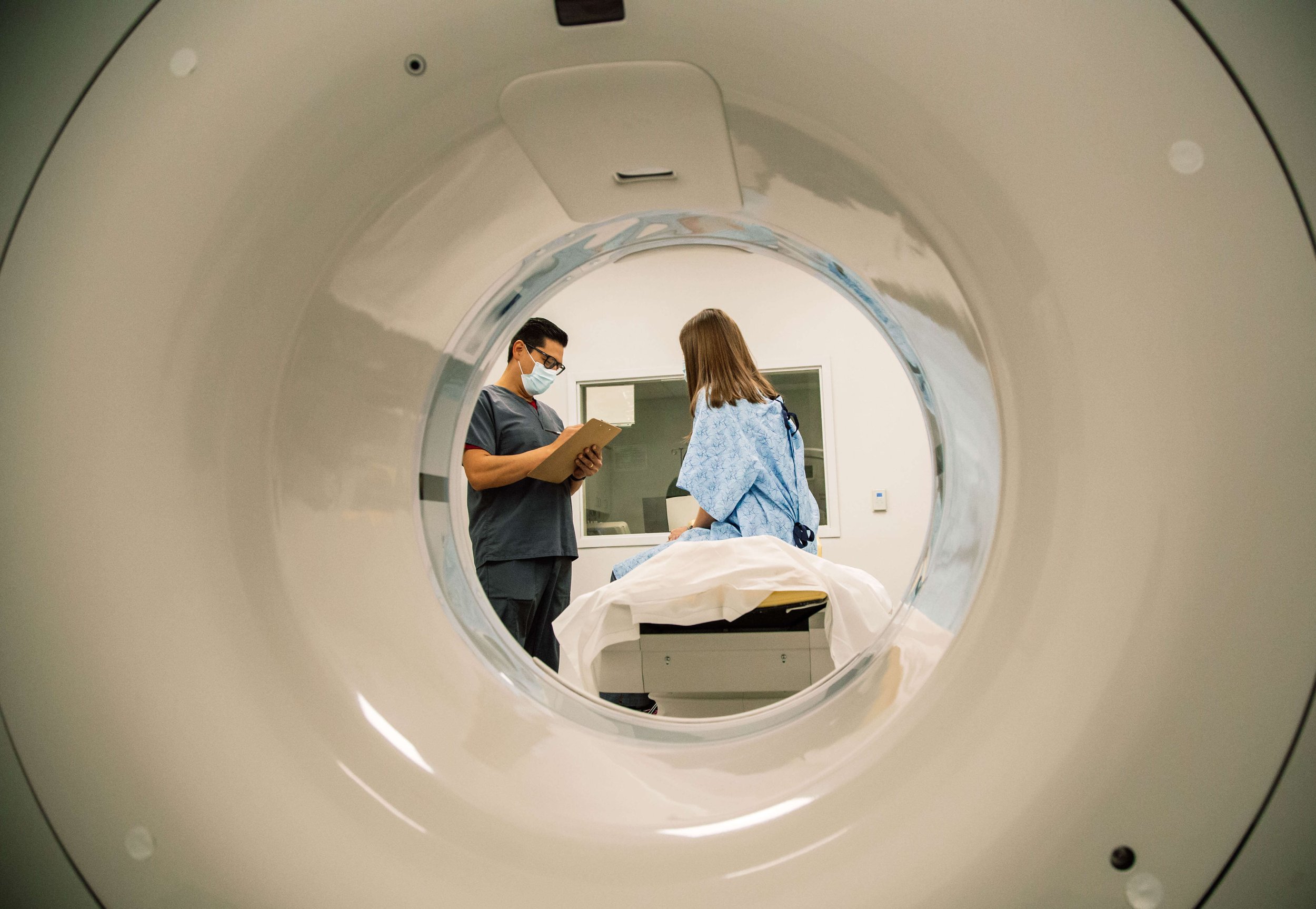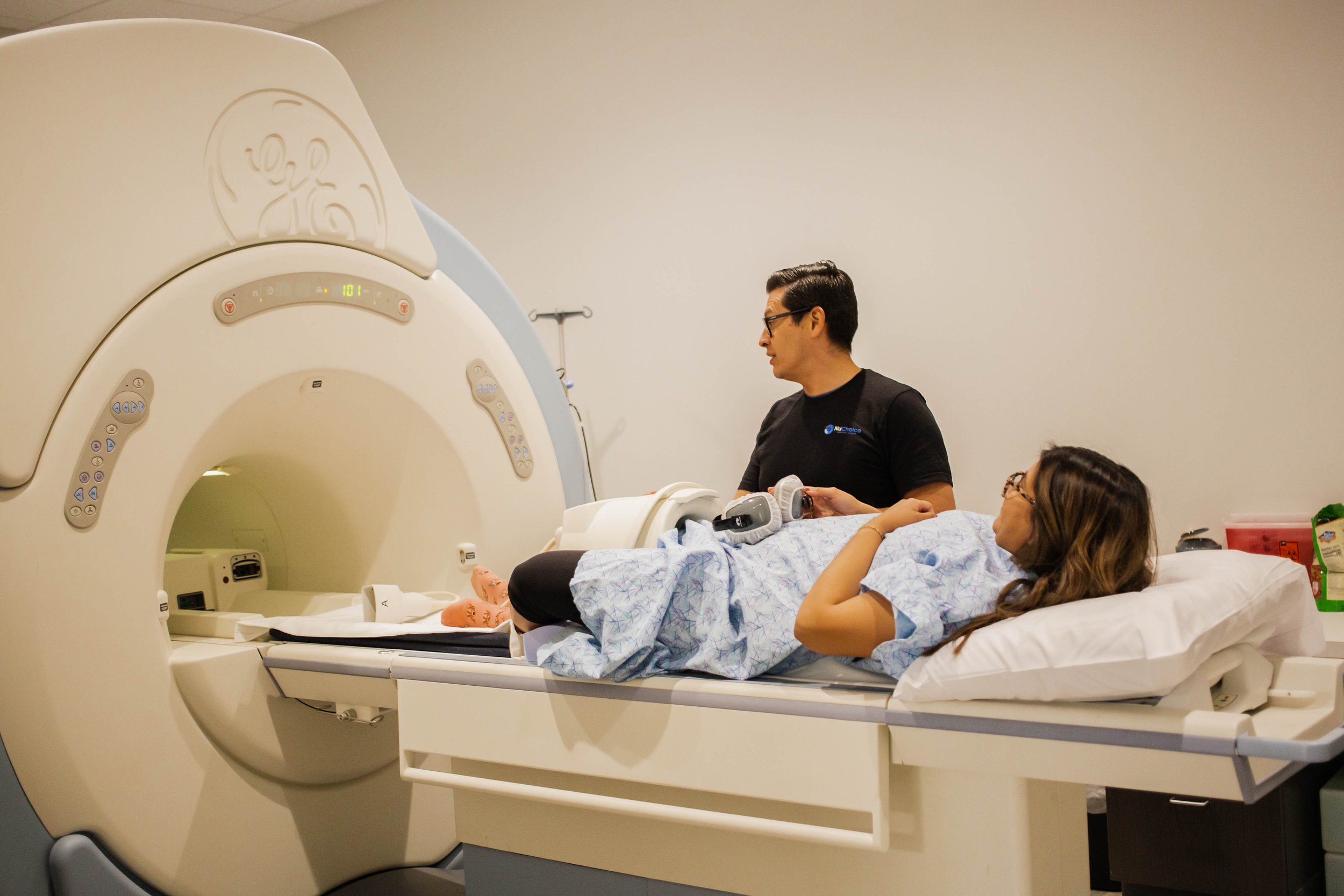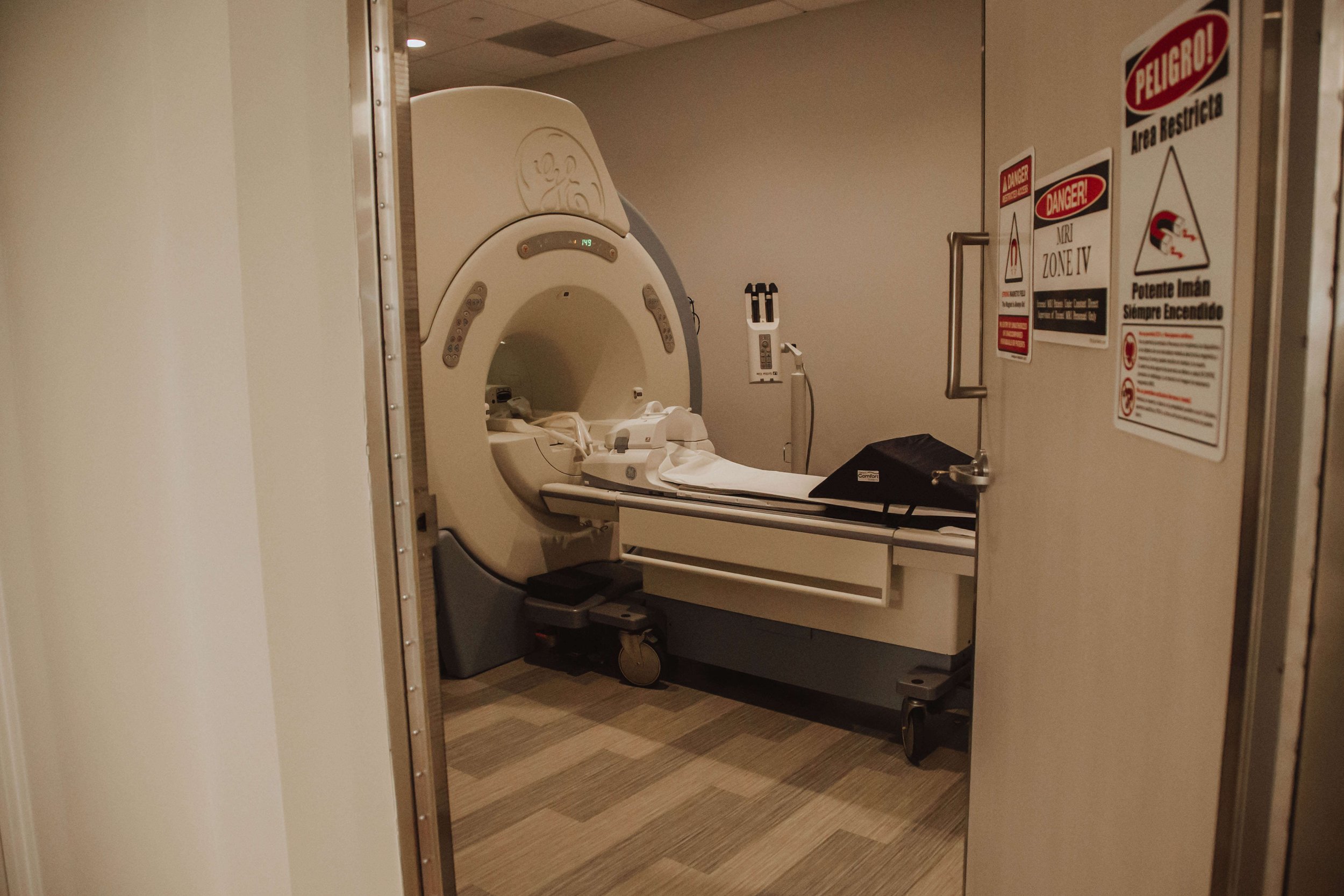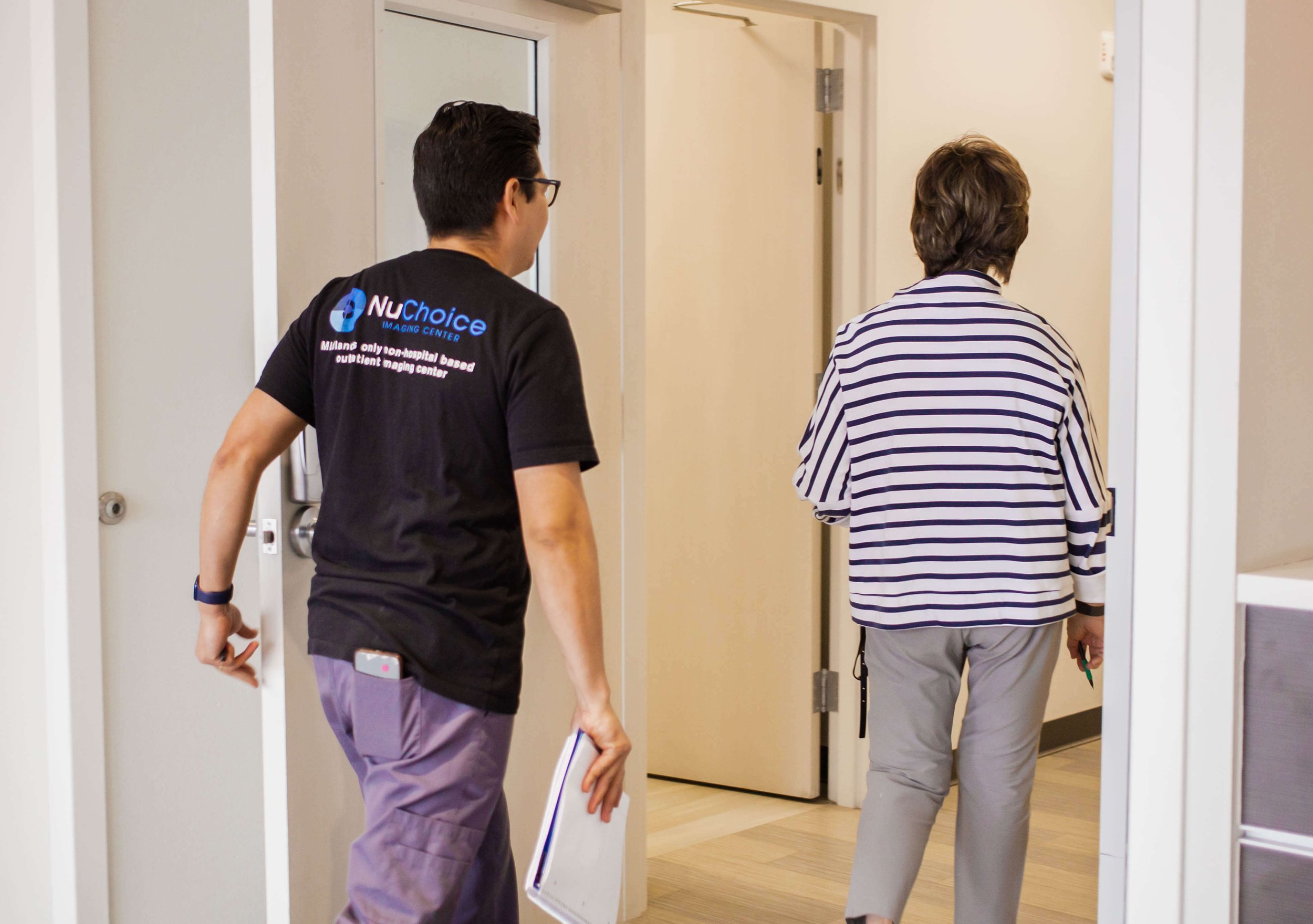Difference between CT & MRI
If you've received notice from your physician that you or a loved one require medical imaging, it can be confusing as to which type of medical imaging procedure needs to be completed. Your doctor will assess your medical history and the specific disease or health concern that is being evaluated to choose the most correct imaging procedure for you. Here we will explain the difference between CT scans (or CAT scans) and MRI scans, two of the most common medical imaging technologies.
CT vs MRI: What is the difference?
CT, or computer tomography scans, and MRIs, or magnetic resonance imaging, are both useful medical imaging procedures that help diagnose health issues. Both create very detailed pictures of internal structures, joints, and bones. CT scans and MRI scans create these images in different ways though. CT scans utilize x-rays to look inside the body and MRIs use magnetic fields and radio waves.
Physicians collect data from these pictures and detect abnormalities in the human body. While CT scans are commonly less expensive than MRIs, they aren't as detailed. Both technologies might require the patient to ingest a contrast dye that helps doctors analyze the images in a more successful manner.
CT scans can diagnose blood clots, bone fractures, organ injuries, and internal bleeding. MRIs tend to show more detail than CT scans and are more expensive, but they are better at examining soft tissues. Because of this, MRIs cost more than CT scans.
Advantages of CT
Both technologies are useful for different reasons, and CT scans are more common than MRIs as well as less expensive. More detailed than a regular X-ray image, they use radiation to create images of the body internally. Unlike MRIs, which can take up to a couple hours to complete, CT scans are normally rather quick procedures, clocking in at a minute or two. This makes them the go to choice for emergency medical situations where doctors have to know quickly what internal damage has been done.
Think of sliced bread: the images that CT scans create are cross-sectional, layered images output to a computer monitor that a physician can analyze. This technology is often what is used in cancer diagnosis without invasive exploratory surgery. Doctors can view cancerous tumors and the blood flow they receive.
In some cases, CT scans require the use of CT contrast: a dye that is used internally to better help your doctor analyze the medical image. The CT contrast will either be given as a liquid to drink, given intravenously, or as an enema. This dye is usually harmless but if you are concerned about allergic reactions or risks, always consult your physician. The medical team is trained to handle situations that might arise like an allergic reaction, but normally, the only side effects might be discomfort or a chalky taste in your mouth.
Another advantage of CT scans is that this method does not use the closed-in machinery of the MRI. Some patients deal with claustrophobia and with the CT process, the patient is quickly assessed with a doughnut-shaped structure, or gantry, that circles around the body.
Advantages of MRI
MRI scans are more expensive and time-consuming than CT scans but they offer the advantage of being totally radiation-free. Instead, they use a strong magnetic field around your body as well as radiofrequency pulses to create images of your internal organs, bones, and other soft tissues.
MRIs succeed better when deciphering small differences between bones and soft tissues. This is why they are used instead of CT scans in some instances. Some diagnoses need the subtlety of MRI technology. You might need an MRI if your physician is looking for joint inflammation, nerve compression, spinal injuries, or other musculoskeletal conditions.
Disadvantages of Both
The main concern that arises with CT scans is the use of radiation. Unlike MRIs, the CT imaging method does expose patients to a low dose of radiation. Current technology and expert staff work diligently to ensure that the dose is as low as possible and safe.
Pregnant people are generally not recommended to undergo CT scans but your physician might call for one if the concern outweighs the risks. Because this type of procedure might need you to ingest CT contrast fluid, informing your doctor about known allergens, a history of kidney disease, heart disease, sickle cell anemia, or thyroid issues will help to prevent any reactions. Same with MRI scans, if you are required to use a contrast dye for the procedure, your doctor must be made aware of any preexisting conditions and allergies.
MRI scans take a much longer time to conduct than CT scans and can induce a sense of claustrophobia in some patients. The enclosed tube-like structure of the technology is a tight space as well as loud. They are also usually more expensive than CT scans but do not expose patients to any radiation. The more detailed images created by MRIs override the discomfort one might experience by having to lie still for multiple hours in a machine.
Talk to Your Doctor about Types of Medical Images
Your physician and the imaging center's expert staff will guide you to the best type of imaging technology for your situation. Doctors train extensively to properly analyze patients' medical histories, allergies, anxieties, and pre-existing conditions. Their analysis will ultimately recommend either a CT or an MRI scan for the situation.
If you are unsure, or have questions or concerns, reach out to the imaging center staff. They are experts in their field and want the best possible outcome for your procedure. Each test has its benefits and disadvantages but physicians are guided by what will create the least harm to each patient. The correct imaging technique will lead to the correct diagnosis and most effective treatment for the medical concern. Choose an imaging center that offers different options, is highly trained, and offers a full range of technologies.
Contact Us Today
NuChoice Imaging
2106 Midland Dr Ste. 101, Midland, TX 79707
432-535-9729
Monday-Friday 8AM-5PM





